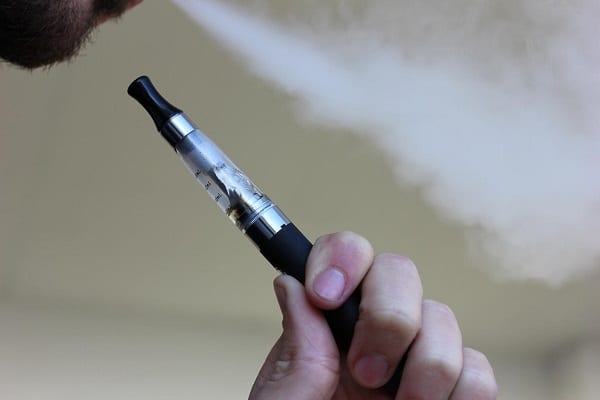BALTIMORE, MD – More alarm bells are going off for e-cigarette users.
The Maryland Department of Health (MDH) and the Maryland Poison Center at the University of Maryland School of Pharmacy have identified five individuals who, in the last two months, developed severe lung illness after using e-cigarettes, often referred to as “vaping.”
Respiratory symptoms reported by patients included shortness of breath, pain associated with breathing, and cough. Other symptoms reported included fever, nausea, vomiting, and diarrhea. The cases displayed no clear infectious cause and all required hospitalization.
To date, none of the cases in Maryland have been fatal. These cases are part of the nearly 200 reported incidents of vaping-related illness in 22 states, resulting in at least one death.
“The Maryland Department of Health is taking this issue seriously and is working with local health departments, the Centers for Disease Control and Prevention and the Food and Drug Administration to identify anyone who may be experiencing similar symptoms,” said MDH Deputy Secretary for Public Health Frances B. Phillips.
The cause of these illnesses is not yet known and has not been linked to any particular device, substance or brand. People who became ill reported using a variety of vaping products, including those containing marijuana and THC and those containing nicotine.
“This is a serious and potentially life-threating illness,” said Bruce Anderson, Executive Director of the Maryland Poison Center. “If you have used e-cigarettes or vaped in the past weeks or months, and you start to have trouble breathing, stop using these products and seek immediate medical attention.”
Many vaping products have been found to contain substances that can be toxic when inhaled and might not be listed on product packaging.
“There is so much we don’t know about the contents of these products. The best way to keep yourself safe is to not use e-cigarettes or vapes,” said Dawn Berkowitz, Director for the MDH Center for Tobacco Prevention and Control. “We know quitting is hard, but there are resources available to help. Trained professionals are available 24/7 to help you stop vaping or smoking.”
MDH encourages medical providers caring for patients with unexplained serious respiratory illness to ask about a history of recent e-cigarette use or vaping, and to report suspected cases to their local health department.


